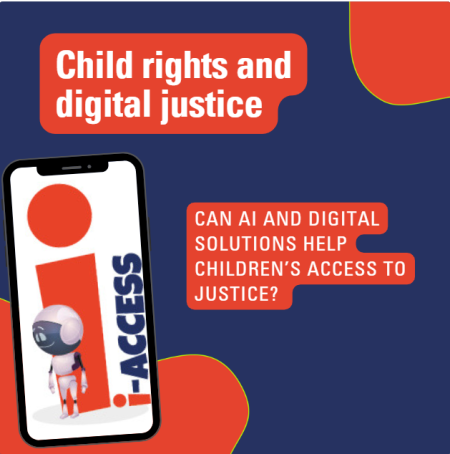
As part of Agenda 16 of the Sustainable Development Goals, the "Justice for Children, Justice for All" project has developed a Policy Brief on Digital Justice for Children. This document highlights the potential risks associated with uncritically adopting digital innovations, which can worsen existing problems in providing children with access to justice. These issues include biases, discrimination, and inadequate procedural safeguards.
While increasing reliance on technology in the justice system offers benefits, it must be approached with careful consideration. Reforming digital justice spaces presents an opportunity to avoid replicating current flaws in the justice system. Instead, we can design and implement digital tools that effectively address key justice issues affecting children.
In the i-ACCESS project, our aim is to demonstrate how an AI-driven chatbot can be designed, developed, and utilized in a manner that aligns with these goals and mitigates existing risks and challenges.
Throughout the project, we actively involve children as stakeholders, engaging them in the design, development, and piloting processes. This ensures that their interests remain a central focus in the solution's development.
Additionally, beyond providing opportunities for meaningful child participation, we collaborate with stakeholders in child justice, AI, digital innovation, child protection, and safeguarding. This collaborative effort ensures that the i-ACCESS chatbot contributes to expediting justice for children while also comprehensively addressing potential risks and implications. Adequate safeguards are put in place to protect children in the process.
For more detailed insights into how we engaged children and youth in the design of the digital tool and to discover their suggestions, please refer to this report.






























